- November 3, 2016
Advice from a Screenprint
Last month, we Happy Coggers packed up shop and moved into a co-working space down the road.
 Cutting down on square footage meant saying goodbye to some of the former office’s wall decor (I’ll miss the periodic table of metal bands) but one piece that survived the journey is a framed typographic print by designer Anthony Burrill. You’ll probably recognize it: “Work Hard and Be Nice to People,” a mantra that’s ubiquitous these days, but one that embodies the Happy Cog way nonetheless.
Cutting down on square footage meant saying goodbye to some of the former office’s wall decor (I’ll miss the periodic table of metal bands) but one piece that survived the journey is a framed typographic print by designer Anthony Burrill. You’ll probably recognize it: “Work Hard and Be Nice to People,” a mantra that’s ubiquitous these days, but one that embodies the Happy Cog way nonetheless.
I always come back to this piece, not just because of its eloquence, but because it’s a literal code of conduct, framed for all to see. And Burrill’s portfolio consists of much of the same. Short, imperative phrases set in all caps, usually on bright backgrounds in the same grotesque typeface. They’re playful and universal in their ambiguity. As with fortune cookies or horoscopes, viewers can interpret the words through the lens of their own experiences. That being said, I see a lot of Happy Cog in his prints—both the values we stand behind and the things I’ve learned in my time here. If an office’s artwork is meant to reveal the personality of the people within, perhaps we should stick with Burrill as an interior decorator.
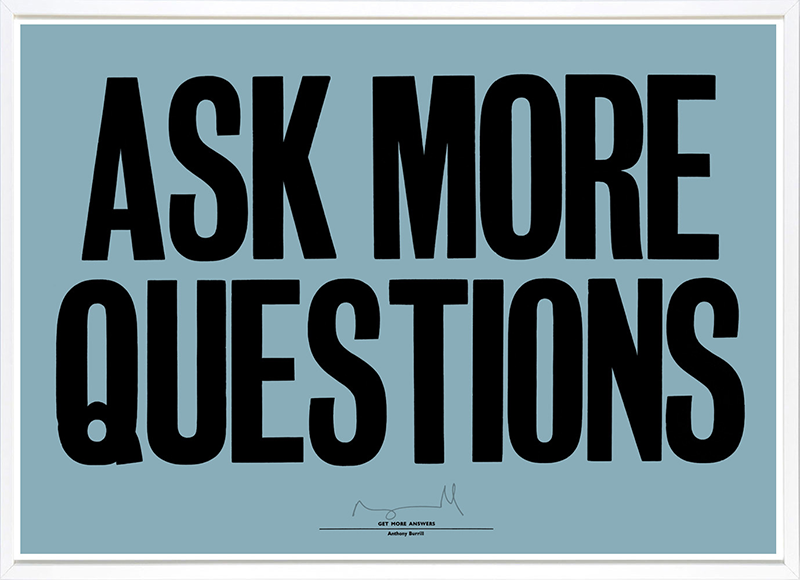
Ask More Questions
I like this one so much, I bought a copy for myself. I’ve written before about the importance of continued learning, and that all starts with asking more questions. Be curious. Get out of your comfort zone. Question the norm. If someone’s reasoning is ‘because it’s always been done that way,’ first question why, then question how it might be done differently.
Ask your coworkers and peers more questions. Ask your clients more questions. “How’s your day going?” is a good place to start. The more questions we ask, the more answers we receive—and the better we begin to understand one another.
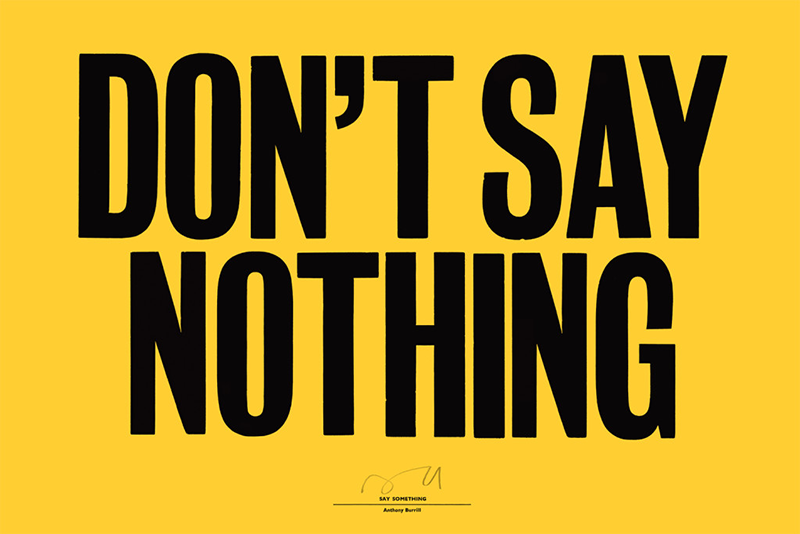
Don’t Say Nothing
This one has always been hard for me, as I’m sure it can be for a lot of introverted types. It’s easy to go into a meeting or be put on a team and feel as though your ideas are insignificant or somehow wrong. It’s also easy to tell people what you think they want to hear. More often than not, though, you were put on that team because your opinion is valued. So speak up. Be yourself.
Not saying nothing isn’t only about being a more vocal team member. It’s about passing on your knowledge to others. Speaking, writing, teaching what we know. You might have all the brilliant ideas in the world, but if you don’t share them—who cares?
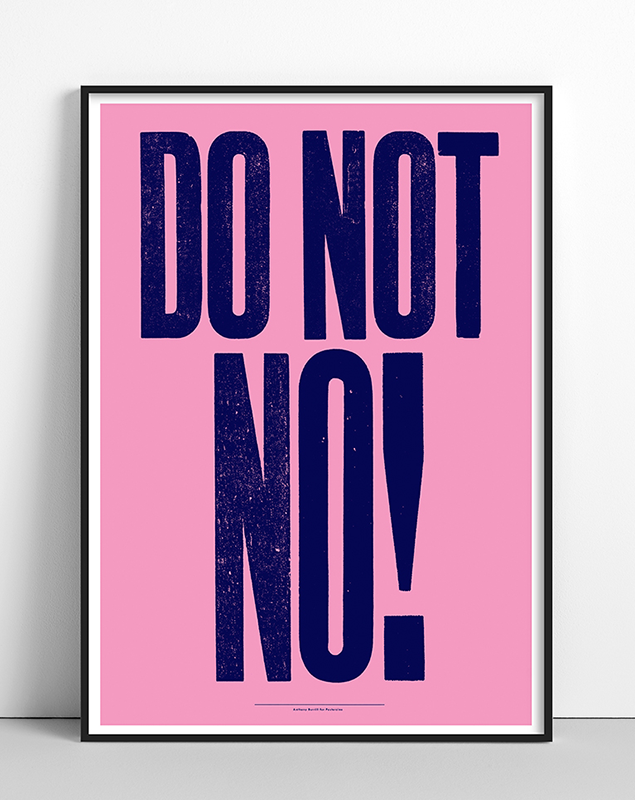
Do Not No!
In my first Cognition article I compared the creative process to improv, and the key rule in improv is to never say ‘no.’ This isn’t to say you should accept every job or agree with every person who comes your way. But when ‘no’ is eliminated from our vocabularies, it forces us to think about why we are saying ‘no’ in the first place. Is there a technical limitation for which another creative solution might exist? Is there a precedent for this kind of thing not working? When we open the door to other opinions and points of view, we better understand the source of our own biases.
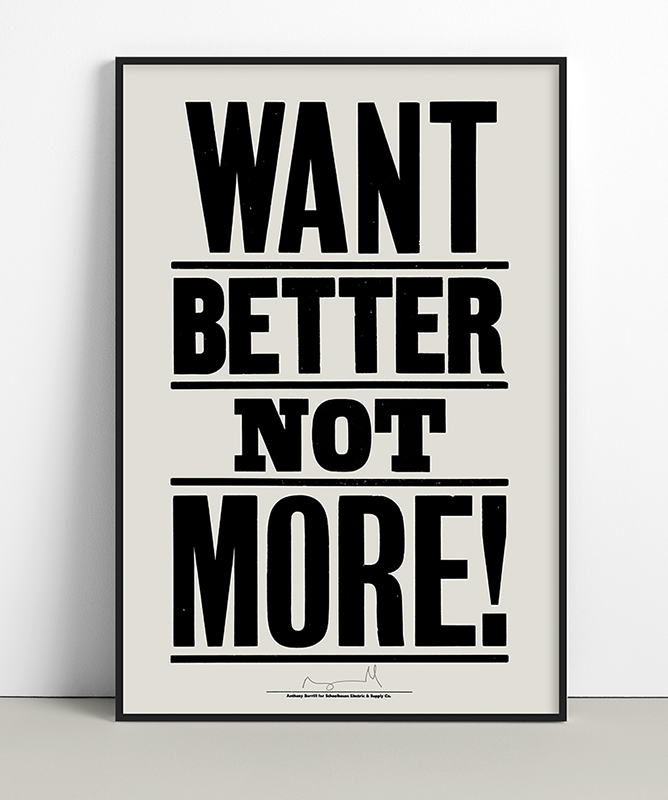
Want Better Not More
Everyone wants more—more money, more spare time, more dessert—but ‘more’ is often mistaken for ‘better.’ This isn’t always the case. Quality always comes before quantity. That’s why my colleagues and I discuss new business ventures to assess fit before diving into every proposal. We carefully conduct interviews and audits before rushing into design solutions. Web design is no longer predicated on cramming as much content as possible above ‘the fold.’ It is, and always has been, about thoughtful experiences that leave lasting impressions. Better, not more.
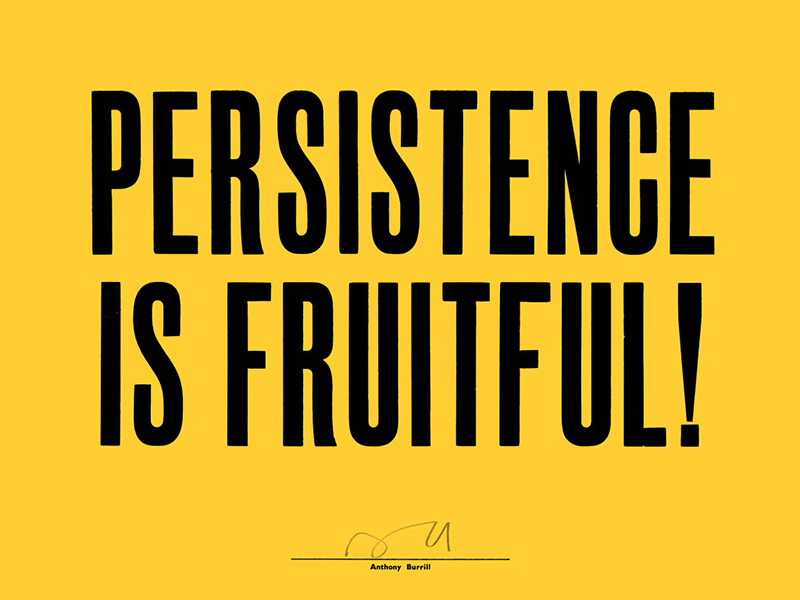
Persistence is Fruitful!
There is no shortcut to making great work, and the easiest way to fail is to give up at the first signs of difficulty. It’s obvious to everyone when corners have been cut. Details matter. Effort matters. I was persistent in my attempts to work at Happy Cog, and that turned out pretty well for me.
That’s not to say persistence always equals success. Failures happen, and when they do, it’s best to assess what went wrong and learn from it just as you would a success. At least you’ll take pride in knowing you didn’t half-ass it.
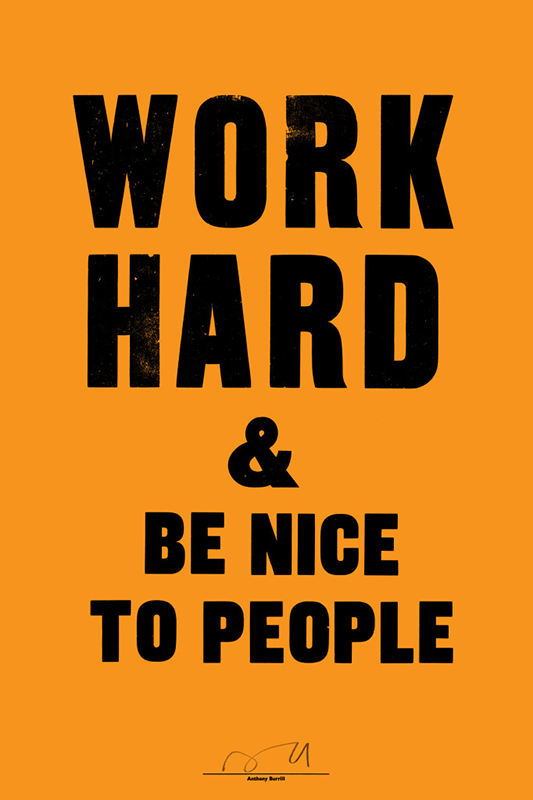
Work Hard and Be Nice to People
The original doesn’t warrant much explanation. Working hard is only half the battle. You’d be surprised how far the being nice part can take you.
—-
There might not be enough square footage in our new office to amass a collection this large, but a run-down of what we stand for is always a good exercise. What’s on your walls?